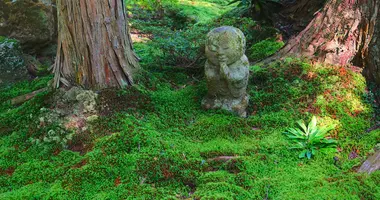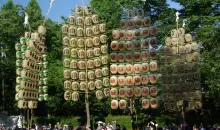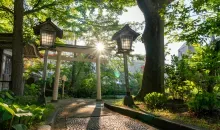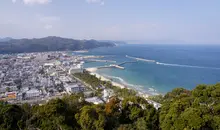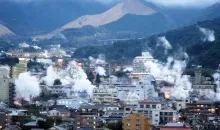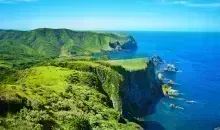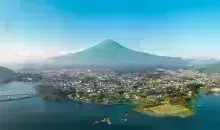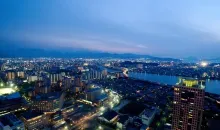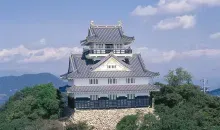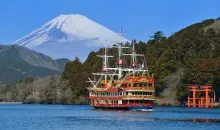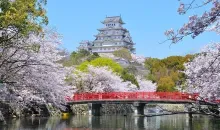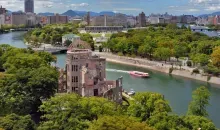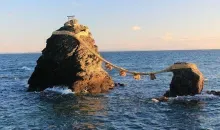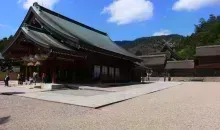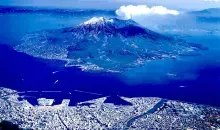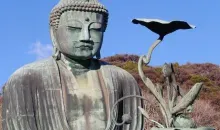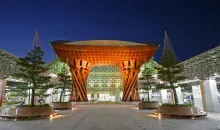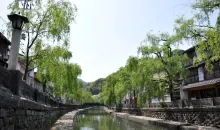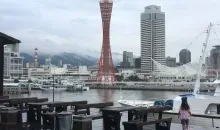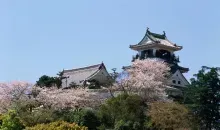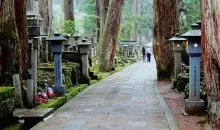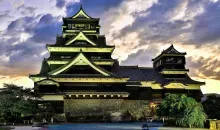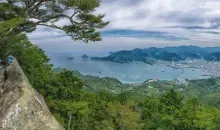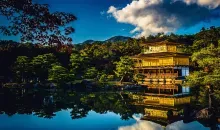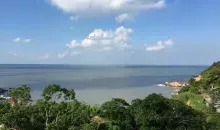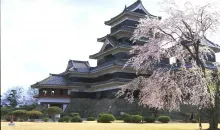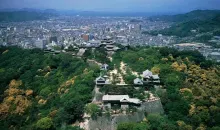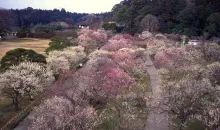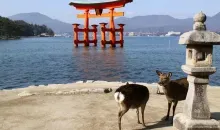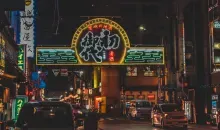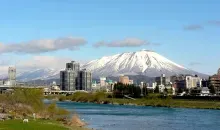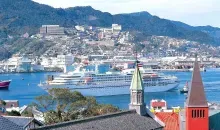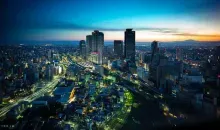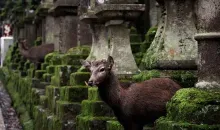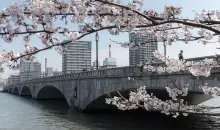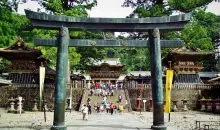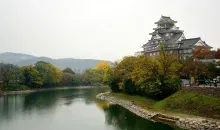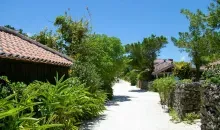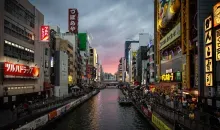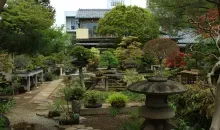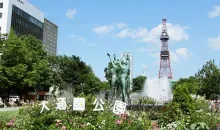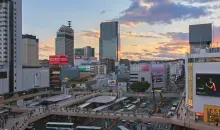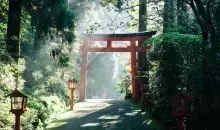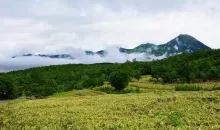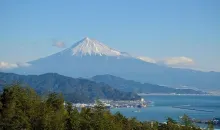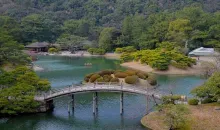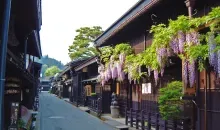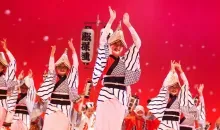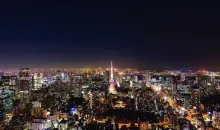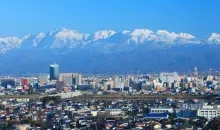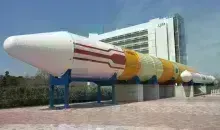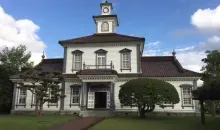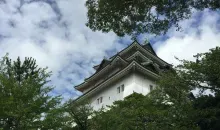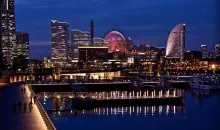Fukui 福井
- Published on : 18/10/2020
- by : M.H. / O.F.
- Youtube
Local Time 03:49
Symbol : sunny
Temp : 17.3°C
Date : Today
Symbol : sunny_cloudy
Temp : 28.7°C
Date : Tomorrow
Symbol : sunny_cloudy
Temp : 28.8°C
Date : Saturday
Symbol : cloudy_rainy
Temp : 23.4°C
Date : Sunday
Local Time 03:49
Symbol : sunny
Temp : 17.3°C
Date : Today
Symbol : sunny_cloudy
Temp : 28.7°C
Date : Tomorrow
Symbol : sunny_cloudy
Temp : 28.8°C
Date : Saturday
Symbol : cloudy_rainy
Temp : 23.4°C
Date : Sunday
Visit Fukui: places to see, activities and practical information
Far from the hustle and bustle of Japan's major cities, Fukui has yet to be besieged by hordes of tourists. However, its wild nature, unique know-how, and historical heritage will seduce you. Discover this region full of tradition which borders the Sea of Japan south of Kanazawa.
The city of Fukui: history and reconstruction
Fukui is the small capital of the prefecture of the same name, near the coast of the Sea of Japan, north of Nagoya. A former fortress city, Fukui was a stronghold of the Tokugawa era and is full of historical sites, fine museums, and a renowned garden. Having suffered extensive damage during World War II and following the devastating earthquake of 1948, the Edo and Meiji period quarters have been rebuilt with great attention to detail.
The site of Fukui Castle is now the government building of Fukui Prefecture, but the impressive stone walls and moat are still there. The covered wooden Orokabashi Bridge was recreated for the 400th anniversary of the castle.
Nearby is the Yokokan Garden, known as "Osensui" during the Edo period, which was the second residence of the Matsudaira clan, the ruling feudal lord. The beautiful tatami-floored villa, lake, and garden were located at the edge of the outer moat and were developed over time by the Matsudaira family. The villa is situated on a lake filled with koi carp and the garden includes an artificial hill, stone bridges and lanterns, and a small, free-standing "Seiren" pavilion. Cherry trees, plum trees, hydrangeas, and peonies can be seen throughout the seasons.
The banks of the Asuwa River are known for their rows of cherry trees in the hanami season with over 600 trees covering approximately 2 km. The banks of the Asuwa River are among the top 100 places in Japan to view cherry blossoms.
It is worth crossing the river to visit Asuwayama Park, which contains the Asuwa Shrine, which enshrines the legendary 6th century Emperor Keitai, and is home to a large, ancient weeping cherry tree. A large statue of Emperor Keitai stands on a burial mound or kofun in the park near the Fukui City Museum of Natural History.
The museums of Fukui
- Next to Yokokan is the Fukui City History Museum, located in a park where the various gravel paths, stone walls, waterways, and moats of the old castle have been excavated and restored to what they must have looked like during the Edo period (1603-1868). The Toneri Gate was also reconstructed using illustrations from the period and traditional techniques. The museum opened in 2004 and contains a permanent exhibition focusing on the history of Fukui from ancient to modern times. There is also a section dedicated to famous people from Fukui.
- The Fukui Prefectural Cultural History Museum has exhibits from various periods of Japanese history, including a "Showa area" which recreates typical scenes from the Showa era (1926-1989), particularly from the 1960s and 1970s.
- The Fukui Art Museum has a collection of Japanese art by artists who were friends of Tenshin Okakura, including Gaho Hashimoto, Hogai Kano, Shunso Hishida and Taikan Yokoyama. There are also works from the so-called Echizen-soga school, including paintings by Matabei Iwasa, Chikuma Suzuki and Makoto Mukami. There are also works of European art by William Blake, Pablo Picasso, Marc Chagall and Francisco Goya.
- Across the Asuwa River is the Fukui City Art Museum or Art Labo Fukui, which displays the work of sculptor Hiroatsu Takata (1900-1987), who spent much of his youth in Fukui.
- Harmony Hall Fukui is a large concert hall located opposite the Harmony Hall tram stop on the Fukubu line. It is known for its large German-made pipe organ.
Fukui's culinary specialties
Wakasa Bay is a culinary goldmine, with fish resources that were well known in the ancient capital Kyoto. The route taken by these products was even nicknamed "the mackerel route".
In winter, many seafood-loving Japanese long for the popular Echizen crab, and do not hesitate to travel from distant regions to Fukui to enjoy it!
Thanks to the exceptional quality of the water used to water the crops, the chefs of the region just have to let the flavors express themselves in their dishes.
Fukui's traditional crafts
Many skills are passed down from generation to generation, and care is taken to celebrate the nature that allows such feats. As you explore Fukui Prefecture, you can discover ancient craftsmanship that has endured for up to 1,500 years.
From the birthplace of lacquerware and paper to pottery and knives, Echizen is where you can see how rich the region is. Chefs from across the world are waiting for their custom-made knives from Echizen experts.
The artisans will share their knowledge with patience and passion, happy to attract travelers to a region where tourism is not yet fully developed. Most of them devote their lives to their art, working for decades with devotion in sometimes harsh conditions without complaints.
- Read also: Echizen, the birthplace of washi paper
What to do and see near Fukui?
Fukui's two major attractions, Eiheiji and the Fukui Prefectural Dinosaur Museum are both located just outside the city but can easily be visited on a half-day trip.
Eihei-ji Temple
Eiheiji Temple, a Zen training temple founded by the monk Dogen in 1244, is only a 30-minute bus ride from the east exit of Fukui Station. Eiheiji consists of about 70 buildings connected by covered wooden walkways built on an ancient wooded hill.
The Hatto, or Dharma Hall, is the highest building and the terrace offers a beautiful view of the temple complex. The Hatto is used for religious services three times a day and for lectures. The Eiheiji Hatto dates from 1843 and contains an image of Kannon and four shishi.
The magnificent Sanmon (the main gate) is the oldest structure in Eiheiji and dates from 1749.
Fukui Prefectural Dinosaur Museum
The modern Fukui Prefectural Dinosaur Museum was designed by Kisho Kurokawa, who was the architect of the Tokyo National Art Center completed in 2000.
The Fukui Prefectural Dinosaur Museum is one of the three largest dinosaur museums in the world and is an active international dinosaur research center with a team of Japanese and foreign specialists in residence. More dinosaurs have been found in the Katsuyama area of Fukui, where the museum is located, than anywhere else in Japan.
To get to the Fukui Prefectural Dinosaur Museum by public transportation, take the Echizen Railway from Fukui Echizen Railway Station at the eastern exit of Fukui Station to the last stop in Katsuyama. From there, it is a 15-20 minute ride by community bus to the museum.
In communion with nature and traditions
Beyond the sea, fields, plains, and mountains that create the fantastic landscape of Fukui Prefecture, it is the people of the region who strive to maintain the heritage they have inherited. They pride themselves on a simple lifestyle that respects their environment. The climate is conducive to cultivation and the landscape changes with the seasons, with beautiful cherry blossoms in spring and a thick layer of snow in winter.
Without relying too heavily on technology, the locals have learned to live with what the land has to offer, and among these treasures, particularly pure water has contributed greatly to the development of agriculture. Whether the produce is caught at sea or brought in from the land, each dish has that little touch of Fukui charm and simplicity.
Handicrafts are revered and many ceremonies are held to honor the god of paper, for example. The Shinto belief is that there are gods in the sea and the mountains, but also in everything in between. People, therefore, owe respect to the nature that embraces their lives.
In Awara, hot springs await travelers who wish to relax in the midst of agricultural landscapes and enjoy the legendary Japanese hospitality. With a breathtaking sunset followed by a spectacular fireworks display, the area is perfect for enjoying all that Japan has to offer. A spiritual getaway where relaxation is the keyword.
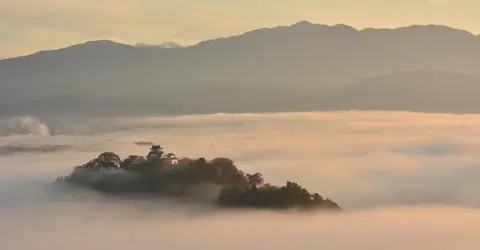
Le château de Ono
©onocity/©JNTO
Interested by Fukui
Discover other cities to explore





